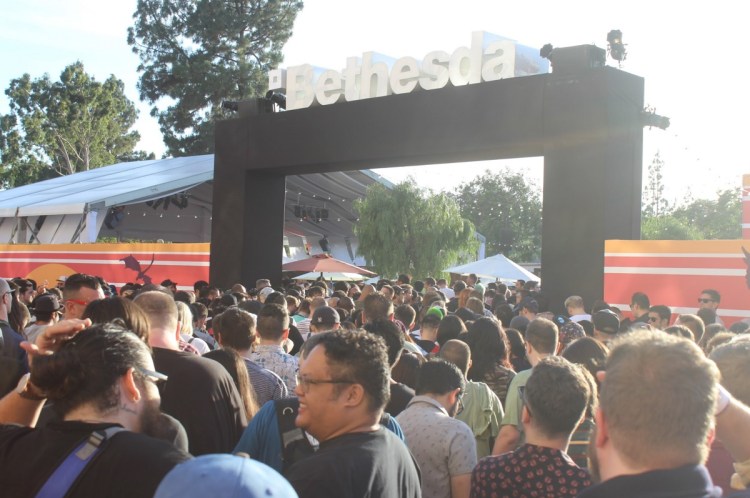The Entertainment Software Association announced today that the coronavirus forced it to cancel the Electronic Entertainment Expo, the big game trade that takes place (well, usually) every June in Los Angeles.
More than 65,000 industry professionals and fans go to the event, which is in its 25th year. But the show had a lot of problems with major vendors pulling out, such as Sony, Electronic Arts, Blizzard, and others.
We asked different leaders of the game industry for their reaction to this and the earlier cancellation of the Game Developers Conference. We wondered what this means for physical versus digital marketing of games, whether more events will be affected, and if digital events can accomplish the same tasks.
Here’s what they said.
June 5th: The AI Audit in NYC
Join us next week in NYC to engage with top executive leaders, delving into strategies for auditing AI models to ensure fairness, optimal performance, and ethical compliance across diverse organizations. Secure your attendance for this exclusive invite-only event.
Renee Gittins, executive director of the International Game Developers Association

Above: Renee Gittins is executive director of the IGDA.
The cancellation of two of the largest events for game developers to connect and market their games will certainly affect marketing strategies for 2020 and beyond. I believe we will see more online announcements planned by larger organizations, while smaller studios will come together to support each other for their own announcements.
The IGDA is launching a program to promote the game and fundraising launches of our members to our audience of over 100,000 game developers and fans. We hope that programs like this will help soften the blow from the loss of these events.
Events planned for later in the year are likely to wait to see how COVID-19 handles the warmer weather in the northern hemisphere. We have already seen a large push of social and influencer marketing in games, and it will likely grow with events being cancelled.
For most consumers, there is little difference between digital and physical events, unless they are one of the 100,000 plus attending events like Gamescom and PAX West in person. However, these changes would more significantly affect press and developers, as in-person connections and demos are more rich, supportive, and valuable.
The IGDA has expanded its online communities and support, from the IGDA Discord to regular webinars. While the IGDA has always been a great resource for best practices, white papers, and studies, we also have active online communities through our local chapters, special interest groups, and the entire international organization. These resources and communities can support all developers around the world affected by these event cancellations.
Michael Condrey, head of Take-Two’s 31st Union studio

Above: Michael Condrey is the founder of a new studio for 2K.
It isn’t easy to cancel tentpole events like E3 and GDC, but I’m proud that our industry is taking a proactive approach to the COVID-19 outbreak. Our studio priority, with support of Take Two and 2K, is to protect the health of our employees and do what’s right for the broader SF Bay Area community of developers and gaming fans. The canceling of E3 has some implications from a marketing standpoint, as its historically been one of the premier events that showcase the great new games of the upcoming holiday season. Industry events represent much more than just promoting new games, however. While we can show new gameplay in a digital way, having the opportunity to spend time with peers and fans in the community is valuable and inspiring. I’ve attended nearly every E3 over the past two decades, and some of my fondest moments include sharing our game’s first public demo timed with E3. Knowledge sharing and the advancement of our craft at GDC holds a special place in my heart. And nothing in our industry matches the excitement of standing at the opening of Gamescom as a sea of fans race through the halls in search of their favorite games.
That said, we are in a new day an age, both with social distancing due to COVID-19, and the power of digital and social marketing lifting games to unprecedented heights. I suspect that Gamescom gets impacted this year, but like imagining an NBA game with no fans in the stands, I don’t think the digital events can capture the energy, excitement and anticipation in the same way that live events have captured for our industry.
Michael Pachter, managing director at Wedbush Securities
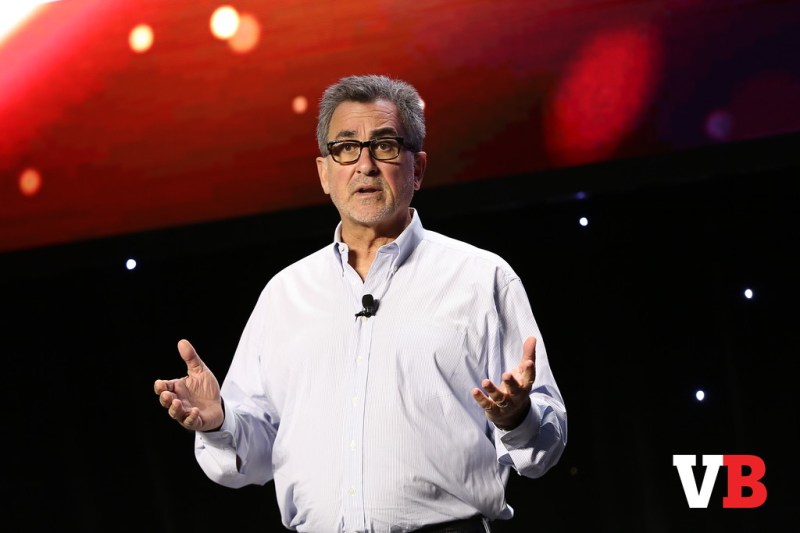
Above: Michael Pachter at GamesBeat 2016.
It definitely puts more pressure on individual companies to attract attention for their games. Without a central focus on the spectacle of E3, game announcements will trickle out ,and it will be more difficult to attract a large audience for each. Yes, I think we’ll get a better feel for whether digital and social marketing can replace the spectacle and pizzazz of the E3 conference itself.
Gamescom is late August, so they should have the luxury of another eight weeks to see what happens. My best guess is that it will not get canceled, since the virus follows a very clear curve and will likely be past the crisis stage by June. However, if the conference organizers are forced to decide soon, they will probably have to cancel.
No, digital events don’t accomplish the same thing. There is something to be said for critical mass from an industry conference.
Mihai Pohontu, CEO of game development agency Amber
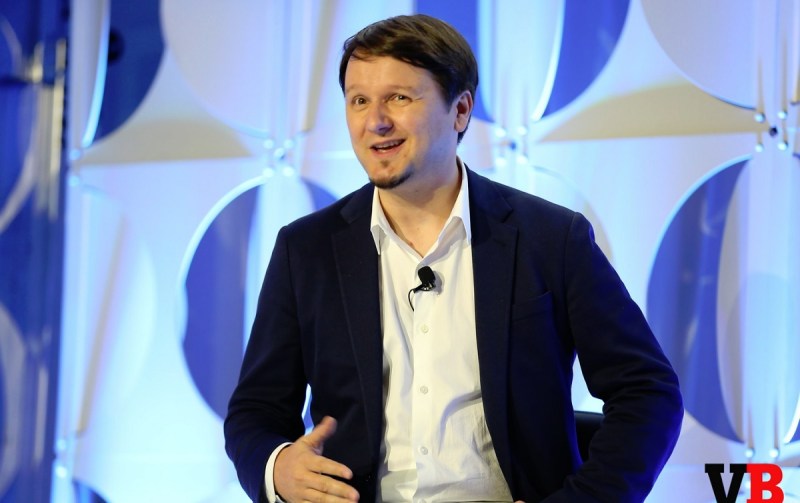
Above: Mihai Pohontu, CEO of Amber.
Our business is reliant on contact with publishers, in order to pitch new game concepts and understand their publishing slate needs, in order to assess whether there’s a profile match between our studios and the genres/platforms they’re targeting. While these contacts can happen via remote meetings, our experience has been that nothing is as effective as in-person interactions. Not only is information exchanged in conferences meetings, but we can also establish bonds of trust and even form lasting friendships.
There’s always the element of serendipity, as you can make new connections at networking events and hear of opportunities that otherwise wouldn’t be available. Amber is working to contain the damage caused by the cancellation of events across the industry, but I expect there will be a significant impact on the game development community at large, particularly on small indie studios who don’t have a biz dev infrastructure or relationships to rely on.
Mike Vorhaus, CEO of Vorhaus Advisers

Above: Mike Vorhaus, CEO of Vorhaus Advisors
The major sponsors of E3 have been trying to quit, or have quit, E3, and this has been going on for years. I think this year will be another nail in the long-term coffin of E3. I don’t think anyone really believes that these conferences are important for consumer sales (E3 use to be when you were booking all your physical distributors in May for the fall), but rather, these are important [in-person meeting] opportunities, seeing old friends, and building the brand of the company with the industry people. I don’t think anyone is going to be very sad about the demise of E3. I imagine Gamescom will be canceled if things don’t quiet down. It is all going to be a function of time and spread of the disease. I am not worried this will hurt my business much.
Jacob Navok, CEO of Genvid Technologies
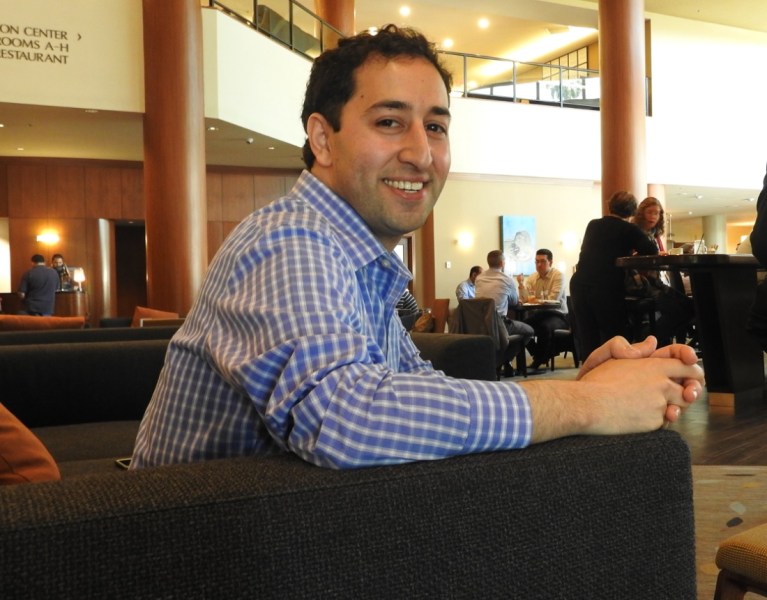
Above: Genvid Technologies CEO Jacob Navok.
Both E3 and GDC mean different things in terms of cancellation.
GDC matters little in terms of consumer marketing (despite Google’s attempts to make it that last year)…. It had some impact, but the large companies have their own channels to get out news to their customers in the industry. GDC is more important for smaller companies and smaller developers — when you’re a studio of five people, and you can meet two dozen partners in two days, as opposed to spending weeks flying around the world, it’s a vastly different set of opportunities and circumstance. This will hurt small developers. Also, [it’ll affect] devs looking for job opportunities, students looking for jobs opportunities, smaller companies like mine who use GDC as a stage to promote when we don’t have our own marketing channels. That is the problem with losing GDC — it doesn’t affect the large companies, it does affect the people who were at the heart of GDC for most of its existence.
E3 is a different story. One of the reasons that people have pulled out is that this was always a trade show for big brands, and those big brands have proven the last half-decade that they can draw consumer attention to their news outside of E3, and if anything, the barrage of news at E3 serves to distract from their stories, which is why they space them out now. There will be limited to no loss of marketing from E3 being canceled — Sony, [Microsoft], and Nintendo all have their own way of getting news out there. Since E3 never functioned as a trade show for small devs, I don’t see an industry impact at the same scale to GDC.
I don’t think digital events negatively effect things from the perspective of consumer marketing. I do think that they negatively affect things from the perspective of industry business development. There will be deals that won’t happen this year because people aren’t meeting at the L.A. JW Marriott or the St. Regis near Moscone.
Bryan Buskas, vice president of marketing at Rogue Games
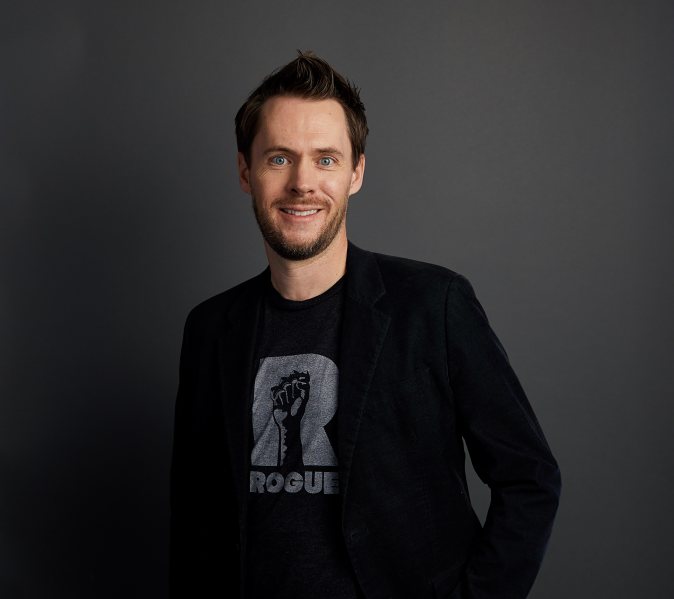
Above: Bryan Buskas is vice president of marketing at Rogue Games.
Games industry events like GDC and E3, which launched two or more decades ago, have long been places to debut new hardware, technologies, and games. They both existed nearly 10 years or more before mobile games and the app stores at a time when games were nearly 100% retail-based. Today, the majority of all games, and marketing, is digital.
While global industry events like E3 and GDC are instrumental in meeting developers and showcasing new games, they are much less related to the marketing of digital games, whether mobile, PC, or console today. When the app stores and mobile games launched more than 10 years ago, games marketing accelerated rapidly toward becoming more performance-/growth-oriented, and budgets expanded rapidly.
While digital E3 and GDC events won’t be the same, where everyone can touch, play, and experience new games in person, the marketing of games will continue to shift toward digital and social, continuing to become more performance/growth based (user acquisition, influencers, social platforms), vs. traditional (retail, TV, out-of-office).
These are all things we’ve seen at Rogue, and [they’re] some of the founding principles of the company. The marketing execution of games has changed rapidly in the digital era — and it’s not slowing down any time soon.
Doron Nir, CEO of livestreaming tools and services provider StreamElements

Above: Doron Nir is CEO of StreamElements.
In the last couple of years, the hours watched of livestreamed E3 content has continued to hit new milestones, so it is going to be even more meaningful for brands who planned to take part in the conference this year. Since announcement videos are one of the most anticipated parts of the show, we also expect more creative activations around influencers such as large scale trailer deployment campaigns.
The appeal of attending events in person are face time with other industry members, hands-on with new games, and feeling the excitement in the room during a press conference reveal. That being said, the most important things are the actual announcements during the press conferences, which are livestreamed and reach the global community. This is why the idea of future cons being completely online is not a far-fetched idea. Devolver Digital, for example, has already illustrated how to successfully produce a virtual press conference and Xbox just announced their digital event.
In terms of others conferences, given the current COVID-19 crisis, game publishers should consider replacing them with online livestreamed events that are co-broadcasted by top creators. The added layer of audience interaction a company like ours provides can deliver the participation component gamers thrive on.
Elizabeth Olson, industry PR and marketing consultant

Above: Elizabeth Olson, pr and marketing consultant for games.
While both shows have marketing aspects, GDC is primarily focused on best industry practices, new technologies, business development, and B2B awareness. With its roots as a showcase for retailers and deal-making, E3’s shift toward consumers primarily benefited certain segments of the industry — namely big publishers and competitive PC and console games – leaving indies, mid-core, AA and mobile to fend for themselves. Which they did largely through digital marketing and less traditional channels. I don’t think digital can fully replace important aspects of either show, but suspect we’ll see an increased focus in digital & content marketing, and virtual events. And it certainly spotlights the growing importance of companies and publishers are that highly-skilled in digital marketing in building customer awareness.
Bernard Kim, president of publishing at Zynga
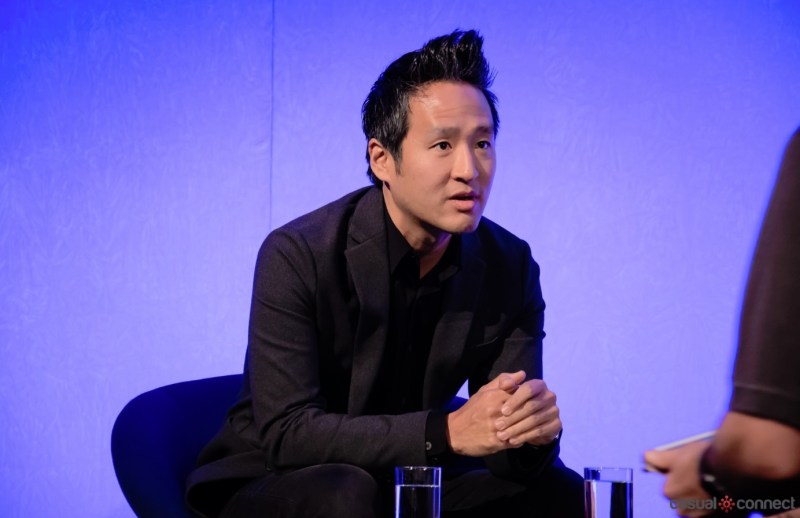
Above: Bernard Kim, head of publishing at Zynga.
The gaming industry is full of resilient people who are well-acquainted with change, adaptation and creating amazing things in unique circumstances. While we’re all eager for things to normalize, in the short term I think we’ll see the industry effectively embrace digital and virtual conferences, as we’ve seen with GDC and others. Video conference meetings, live streaming keynotes, webinars and virtual workshops offer incredible opportunities and options. I think we will rally to continue and possibly evolve our participation in these annual events.
